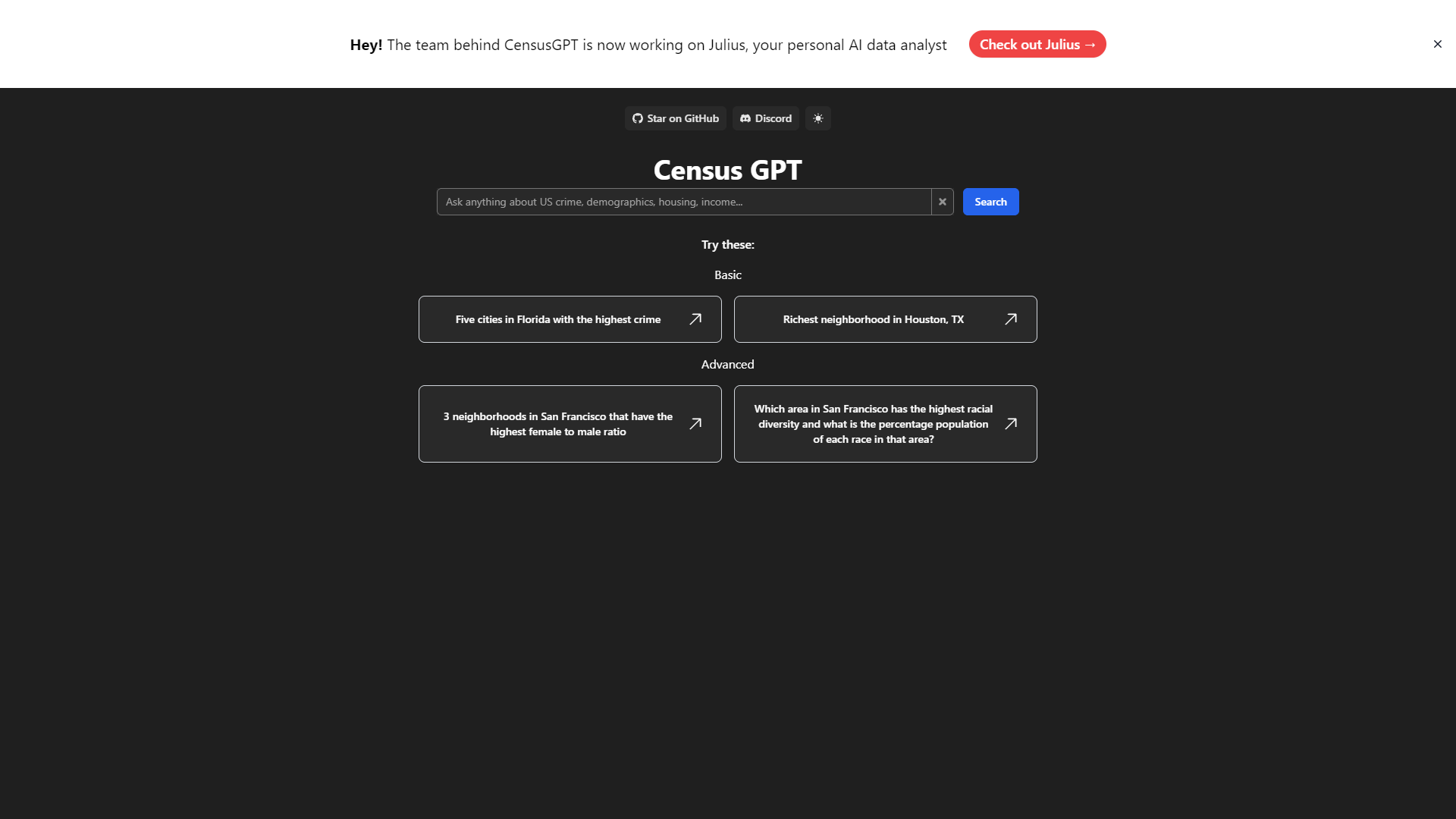Overview
Census GPT is an innovative AI-powered tool designed to streamline the analysis of U.S. census data. It enables users to effortlessly search and analyze a wide array of data points including crime rates, demographics, income levels, education statistics, and population figures. The platform is particularly useful for those seeking detailed insights into specific locales across the United States. For instance, users can easily find data on the five cities in Florida with the highest crime rates or identify the wealthiest neighborhood in Houston, TX.
The tool offers both basic and advanced search functionalities. Advanced searches allow for more granular inquiries, such as examining neighborhoods in San Francisco by gender ratios or identifying areas with the highest racial diversity, complete with detailed population percentage breakdowns of each race. Census GPT sources its robust data from the 2021 American Community Survey (ACS) for general census information and the FBI’s 2019 Uniform Crime Reporting (UCR) for crime-related data.
Currently, the team behind Census GPT is developing Julius, a new tool envisioned as a personal AI data analyst, promising even more personalized and precise data handling capabilities. This expansion aims to broaden the scope of data categories available, enhancing the tool's utility for a wider range of users and applications.
Key features
- Advanced data querying: Allows users to perform complex searches, such as identifying areas with specific demographic profiles or crime statistics.
- Comprehensive data sources: Integrates data from the 2021 American Community Survey and the FBI's 2019 Uniform Crime Reporting.
- User-friendly interface: Designed to be accessible for both novice users and experienced data analysts with basic and advanced search options.
- Geographic specificity: Enables searches down to neighborhood-level details, providing precise data for targeted analysis.
- Dynamic data expansion: The development team is actively working to include more data categories and sources to enhance the tool's utility.
- Personalized analysis: Julius, the new AI tool, acts as a personal data analyst, tailoring data exploration and analysis to individual user needs.
 Pros
Pros
- Real-time updates: The tool provides real-time updates, ensuring users access the most current data available for accurate and timely analysis.
- Collaborative features: Supports multiple users working simultaneously, facilitating teamwork and shared access to projects and data analyses.
- Customizable dashboards: Users can create and customize dashboards to highlight key metrics and data points relevant to their specific needs and preferences.
- Export capabilities: Allows users to export data and reports in various formats such as CSV, PDF, and Excel for further analysis or presentation.
- Secure data handling: Implements robust security measures to protect sensitive data and user privacy, ensuring compliance with data protection regulations.
 Cons
Cons
- Slow update frequency: The tool updates its integrated data sources annually, which may not reflect the most current statistics or changes in demographics and crime.
- Limited historical data: Only includes data from the 2021 American Community Survey and the FBI's 2019 report, lacking a broader historical perspective.
- No offline functionality: Requires a continuous internet connection to access data and perform analyses, limiting use in areas with poor connectivity.
- Restricted customization options: While Julius provides personalized analysis, the tool lacks options for users to create custom data fields or merge external datasets.
- Language support limitations: Currently supports only English, which can be a barrier for non-English speaking users needing to access and analyze data.

















